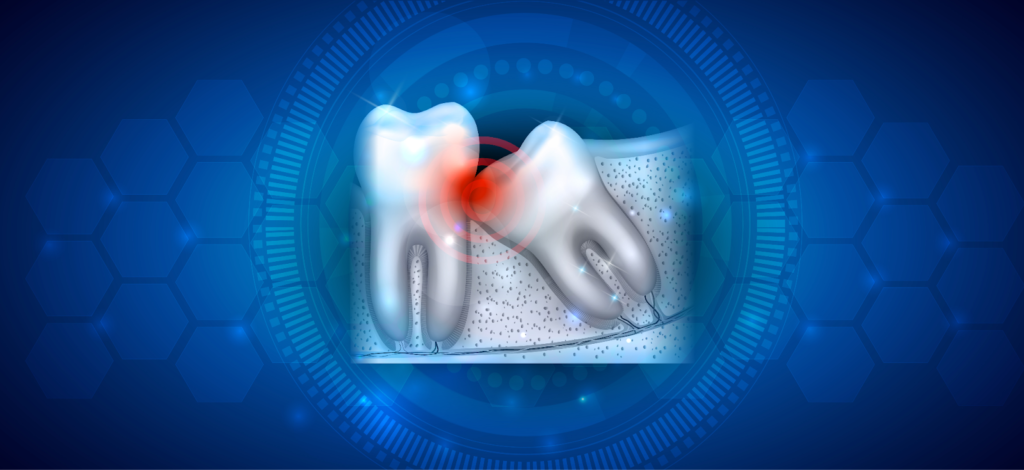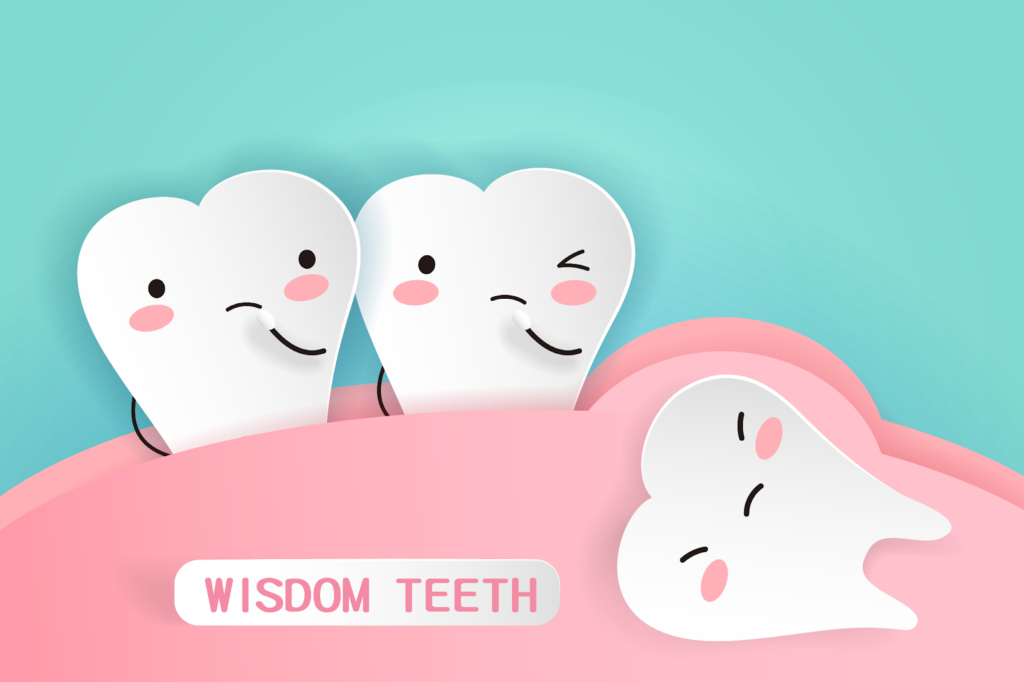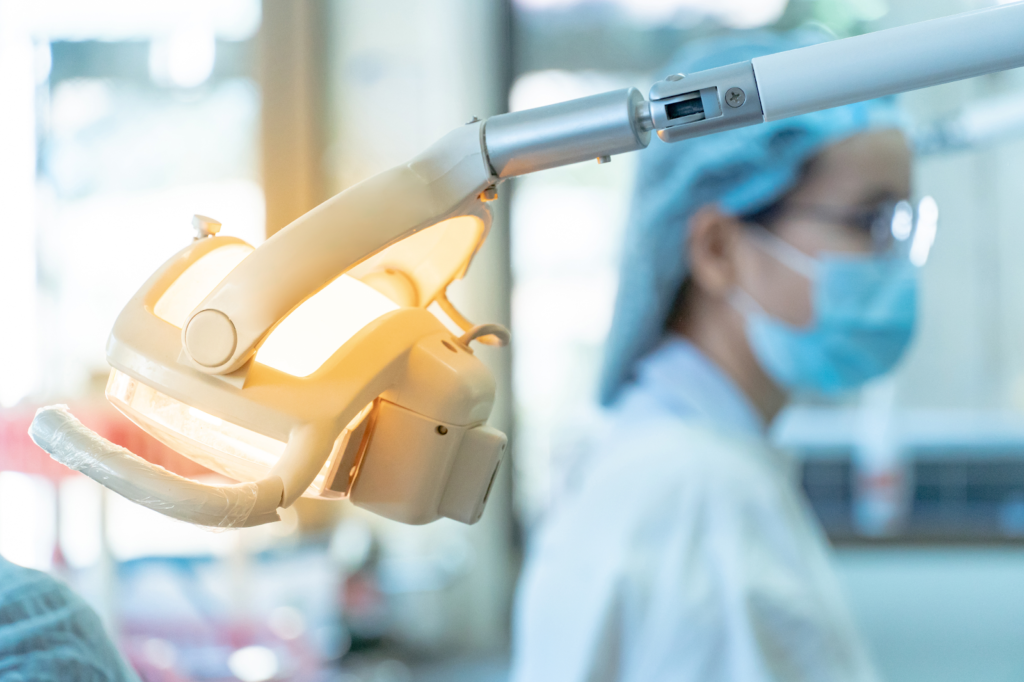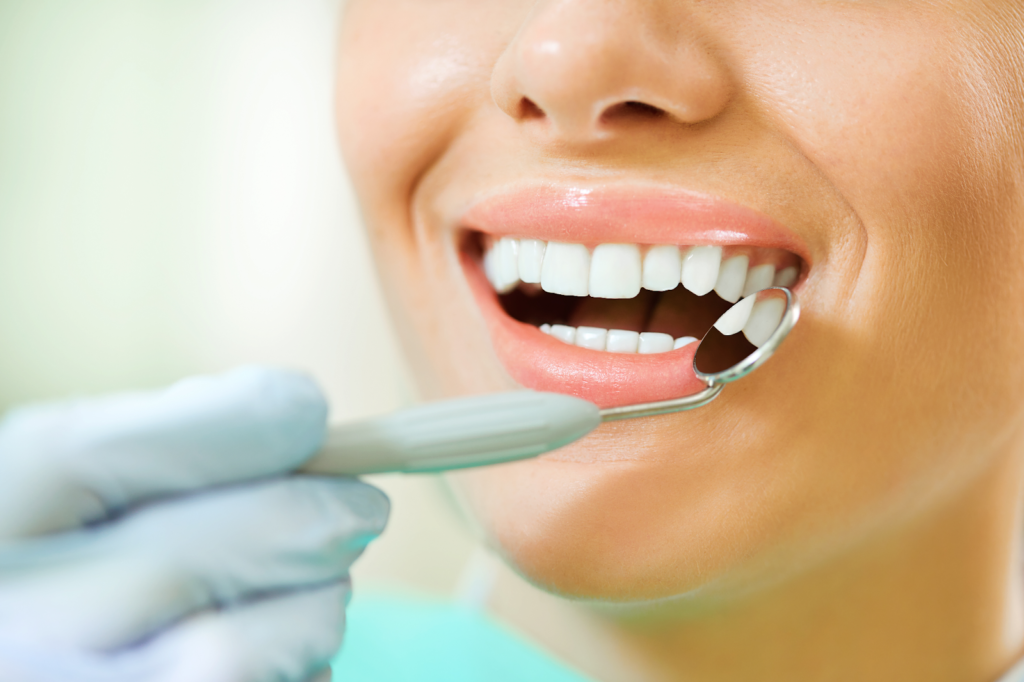Wisdom teeth removal is one of the most common dental procedures performed in the United States. At Irby Dentistry in Roanoke, VA, Dr. David W. Irby and Dr. Adam C. Williams provide safe, comfortable extraction services for patients who need their third molars removed. Many people wonder if it’s necessary to remove wisdom teeth, and the answer depends on your individual situation. While not everyone requires this procedure, understanding when and why you have to remove wisdom teeth can help you make an informed decision about your oral health.
Our experienced dentists carefully evaluate each patient to determine whether extraction is the best option or if your wisdom teeth can safely remain in place.
Do You Need to Remove Your Wisdom Teeth?
Do you need to remove wisdom teeth? The answer isn’t the same for everyone. Wisdom teeth, also called third molars, typically emerge between ages 17 and 25. When these teeth grow in properly aligned and don’t cause problems, they may not need to be removed. However, many people don’t have enough room in their jaw for these additional teeth, which can lead to various complications.
Your dentist will evaluate several factors to determine whether extraction is necessary. These include the position of your wisdom teeth, how they’re impacting neighboring teeth, your jaw structure, and your overall oral health. Regular dental exams and X-rays allow our team to monitor your wisdom teeth development and recommend timely intervention when needed.

Signs You Need Your Wisdom Teeth Removed
Several warning signs indicate that wisdom teeth removal may be necessary:
Pain and Discomfort: Persistent pain in the back of your mouth, near the wisdom teeth area, is often the first sign of a problem. This discomfort may come and go or remain constant.
Swollen or Bleeding Gums: When wisdom teeth partially emerge, they can create pockets where bacteria accumulate, leading to inflamed, tender gums that may bleed during brushing.
Jaw Stiffness: Difficulty opening your mouth fully or experiencing jaw pain can indicate that wisdom teeth are pressing against the jawbone or adjacent teeth.
Repeated Infections: Partially erupted wisdom teeth are prone to pericoronitis, an infection of the gum tissue surrounding the tooth that causes pain, swelling, and difficulty swallowing.
Crowding: Wisdom teeth pushing against your other teeth can cause misalignment issues, especially if you’ve previously had orthodontic treatment.
Cysts or Tumors: In rare cases, impacted wisdom teeth can lead to cysts or benign tumors that require surgical removal.
Tooth Decay: When wisdom teeth are difficult to reach with a toothbrush, cavities can develop more easily.

What Happens If You Don’t Get Wisdom Teeth Removed?
Choosing to delay or avoid wisdom teeth removal when it’s recommended can lead to several complications. Impacted wisdom teeth that remain untreated may damage adjacent molars, causing decay or requiring root canal treatment. The pressure from erupting wisdom teeth can undo years of orthodontic work, shifting your teeth out of alignment.
Chronic infections can develop when bacteria become trapped around partially erupted wisdom teeth. These infections may spread to surrounding tissues and, in severe cases, affect your overall health. Cysts can form around impacted teeth, potentially damaging the jawbone and neighboring teeth. The longer problematic wisdom teeth remain, the more complex the extraction may become, as the tooth roots continue to develop and become more firmly anchored in the jawbone.

Wisdom Teeth Removal Treatment Detail
Understanding the wisdom teeth removal process can help ease any anxiety about the procedure. At Irby Dentistry, we prioritize your comfort and safety throughout every stage of treatment.
Before the Surgery
Your journey begins with a comprehensive examination. Our team will take detailed X-rays or a 3D scan to assess the position of your wisdom teeth and plan the best approach for extraction. During your consultation, we’ll review your medical history, current medications, and any allergies to ensure your safety.
We’ll discuss sedation options based on the complexity of your case and your comfort preferences. Local anesthesia is always used to numb the treatment area. For more complex extractions or anxious patients, we can discuss additional sedation methods. Our team uses gentle anesthesia techniques that patients often describe as painless—many comment that they “didn’t even feel” the injection.
You’ll receive detailed pre-operative instructions, including guidelines about eating, drinking, and medications before your appointment. We recommend arranging transportation, as you shouldn’t drive immediately after the procedure.
During the Surgery
On the day of your procedure, our team will ensure you’re comfortable before beginning. Once the anesthesia takes effect, Dr. Irby or Dr. Williams will carefully access the wisdom tooth. For fully erupted teeth, the extraction process is straightforward. Impacted teeth may require a small incision in the gum tissue and sometimes removal of a small amount of bone to access the tooth.
In some cases, the tooth is sectioned into smaller pieces for easier removal, minimizing trauma to surrounding tissue. Throughout the procedure, our doctors use precise techniques developed through extensive training and experience. Most wisdom teeth removal procedures take between 30 to 60 minutes, depending on the number of teeth being extracted and their complexity.
After the Surgery
Immediately following the procedure, you’ll receive gauze to bite down on, which helps control bleeding and promotes blood clot formation. This clot is essential for proper healing. The initial recovery period typically lasts a few days to a week. You may experience some swelling, mild discomfort, and slight bleeding—all normal parts of the healing process.
We provide comprehensive aftercare instructions and are available for any questions during your recovery. Most patients return to normal activities within a few days, though complete healing of the extraction site takes several weeks.

Benefits and Risks of Wisdom Tooth Extraction
Understanding the advantages of removing wisdom teeth helps many patients feel confident about their treatment decision.
Benefits include:
- Prevention of tooth crowding and bite misalignment
- Reduced risk of decay in hard-to-clean areas
- Elimination of recurring infections and inflammation
- Prevention of cyst formation and jawbone damage
- Relief from pain and jaw stiffness
- Protection of adjacent healthy teeth
- Lower risk of complications compared to waiting until problems develop
- Easier recovery when performed at a younger age
Potential risks, which are relatively uncommon, include:
- Temporary numbness if nerves are near the extraction site
- Dry socket (when the blood clot dislodges)
- Infection at the extraction site
- Excessive bleeding
- Jaw stiffness or soreness
At Irby Dentistry, Dr. Irby and Dr. Williams’ extensive training and experience minimize these risks. We carefully monitor your healing and provide support throughout the recovery process.
Recovery After Wisdom Teeth Removal
A smooth recovery depends on following proper aftercare guidelines. Most patients experience their most significant discomfort during the first 48 to 72 hours, with steady improvement afterward.
What to Do After Wisdom Tooth Extraction
Day One: Bite firmly on gauze for 20 minutes to one hour after the procedure to encourage blood clot formation. Change the gauze as needed if bleeding continues. Apply ice packs to your face for 20 minutes on, 20 minutes off, to minimize swelling.
Pain Management: Take prescribed or recommended pain medication as directed. Over-the-counter options like ibuprofen often provide sufficient relief for mild to moderate discomfort.
Diet: Stick to soft, cool foods for the first few days. Smoothies, yogurt, applesauce, mashed potatoes, and scrambled eggs are excellent choices. Gradually reintroduce solid foods as comfort allows.
Oral Hygiene: Continue brushing and flossing your other teeth, but be extra gentle near extraction sites. Beginning 24 hours after surgery, rinse gently with warm salt water after meals to keep the area clean.
Rest: Take it easy for the first couple of days. Keep your head elevated while resting to reduce swelling.
What Not to Do After Wisdom Tooth Extraction
Certain activities can disrupt healing and lead to complications. Avoid using straws, as the suction can dislodge blood clots and cause dry socket, a painful condition that delays healing. Don’t smoke or use tobacco products for at least 72 hours—ideally longer—as smoking significantly increases complication risk.
Avoid vigorous rinsing, spitting, or swishing during the first 24 hours. Don’t consume hot liquids, alcohol, or crunchy foods that could irritate extraction sites. Skip strenuous exercise and heavy lifting for several days, as increased blood pressure can cause bleeding. Don’t neglect the rest of your oral hygiene routine; just be gentle around the surgical areas.
Flexible Payment Options for Dental Services Without Insurance
At Irby Dentistry, we believe everyone deserves access to quality dental care, including wisdom teeth removal. We offer several convenient payment options for patients with or without dental insurance.
Our practice partners with Sunbit, which approves 85% of applicants with no hard credit check and no late fees. This flexible financing option allows you to break treatment costs into manageable monthly payments. We also accept CareCredit, another popular healthcare financing solution.
For patients without dental insurance, our Dental Wellness Club provides an affordable alternative. This in-house membership plan offers preventive care and discounts on procedures, helping you save money on dental treatments throughout the year.
We accept cash, personal checks, Visa, and MasterCard. As a Delta Dental in-network provider, we’ll help you maximize your insurance benefits if you have coverage. Our knowledgeable staff can help you understand your payment options and create a plan that works for your budget. Contact our office at (540) 342-6800 to discuss financing before your appointment.

FAQs About Wisdom Teeth Removal
Why Are Wisdom Teeth Causing Me Pain?
Wisdom teeth pain typically occurs when these molars don’t have enough space to emerge properly. Impaction—when teeth remain trapped beneath the gum line or grow at an angle—creates pressure against adjacent teeth and bone. Partially erupted wisdom teeth create pockets where food and bacteria accumulate, leading to infection and inflammation. The pressure and infection together cause the throbbing pain many people experience. Even wisdom teeth that appear to be erupting normally can cause discomfort if they’re pressing against existing molars.
Can I Receive Wisdom Teeth Removal as an Adult?
Absolutely! While wisdom teeth removal is often performed on younger adults, people of all ages can undergo this procedure when necessary. Many adults choose extraction later in life when symptoms develop or during preventive care. The procedure itself is the same regardless of age, though recovery may take slightly longer for older adults.
Can I Keep My Wisdom Teeth?
You can keep your wisdom teeth if they meet certain criteria. Properly aligned wisdom teeth that have fully erupted, can be cleaned effectively, don’t cause pain or crowding, and aren’t decayed or infected may safely remain. Some people have adequate jaw space for their wisdom teeth and never experience problems. However, wisdom teeth require diligent oral hygiene and regular dental monitoring.
Does Your Face Change After Wisdom Tooth Removal?
Wisdom teeth removal doesn’t permanently change your facial structure or appearance. Some patients experience temporary swelling and mild changes in facial contour during the recovery period, but these effects resolve within a few days to a week. The concern about permanent facial changes often stems from confusion about jaw surgery, which is entirely different from wisdom tooth extraction. The procedure removes teeth, not facial bones, so your face shape remains unchanged once healing is complete.
Why Do Experts Now Say Not to Extract Your Wisdom Teeth?
This is somewhat of a misconception. Current dental guidelines recommend a case-by-case approach rather than universal extraction. In the past, preventive removal was common even when wisdom teeth weren’t causing immediate problems. Modern evidence-based dentistry focuses on evaluating each patient individually. If wisdom teeth are healthy, properly positioned, and not causing problems, many dentists now recommend monitoring rather than automatic extraction. However, when wisdom teeth are impacted, causing pain, contributing to decay, or threatening nearby teeth, extraction remains the standard recommendation.
Is It Okay to Never Remove Wisdom Teeth?
Yes, it’s perfectly fine to keep your wisdom teeth if they’re not causing problems. Many people go their entire lives with wisdom teeth intact without experiencing issues. The key is regular dental monitoring. If your wisdom teeth are positioned correctly, fully erupted, cavity-free, and you can clean them effectively, there’s no medical reason for removal. However, this requires ongoing vigilance. Regular dental checkups and X-rays help detect early warning signs before they become serious problems. Is it necessary to remove wisdom teeth if they’re healthy? Not necessarily—but professional monitoring is essential.
What Is the Downside of Removing Wisdom Teeth?
Like any surgical procedure, wisdom teeth removal has potential drawbacks to consider. The recovery period requires time off from normal activities and temporary dietary restrictions. There’s a small risk of complications such as infection, dry socket, or temporary numbness. The procedure involves some discomfort during recovery, though most patients find it manageable with proper pain management. There’s also the financial consideration, though payment plans and insurance coverage often help. However, for patients with problematic wisdom teeth, these temporary downsides are typically outweighed by the long-term benefits of preventing serious dental problems.
Wisdom Teeth Removal from Irby Dentistry
When you need wisdom teeth removal in Roanoke, VA, Irby Dentistry provides the experienced, compassionate care you deserve.
Our modern practice features the latest dental technology in a comfortable, welcoming environment. We understand that many patients feel anxious about dental procedures, and our team excels at creating a calm, supportive experience. From your initial consultation through complete recovery, we’re here to answer questions, address concerns, and maintain your long-term oral health.
Contact Irby Dentistry today at (540) 342-6800 or make an appointment online to schedule your wisdom teeth evaluation. Our caring team is ready to help you achieve optimal oral health with the personalized attention you deserve.








